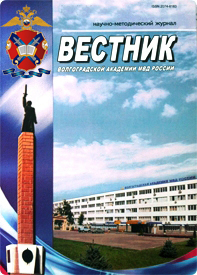In objective reality policy becomes comprehensive and topical both internationally and within the country. Based on theoretical prerequisites there is a need to develop theoretical, legal and methodological perspectives of the modernized integrated approach to understanding policy formation as an independent phenomenon. In the modern legal doctrine the problem of policy formation has lack of attention. At the same time, against the background of complex trends and tendencies of contemporary society development more detailed study of this problem becomes especially important, both theoretically and practically significant. Scientific aspects of legal policy are largely based on it. Policy formation is an independent process. It is mediated by rules of law activities of certain subjects to achieve socially significant goals. The theoretical part of it, however, remains open and includes a list of subjects having so significant power that their activities affect both the policy and the goals achieved through policy, and indications of transforming public relations into political ones, that is the period, when the public relations become so powerful and considerable, that take a political form.
protection of rights and freedoms, human rights policy, civil society, government institutions, law enforcement policy, law-governed state, human rights system, policy formation (syn. policy development)
1. Trofimov V. V. Pravoobrazovanie v sovremennom obschestve: aktual'nye aspekty teorii i metodologii // Ros. yurid. zhurnal. 2010. № 5. S. 50.
2. Drobyazko S. G. Pravoobrazovanie, pravotvorchestvo, pravoustanovlenie, ih sub'ekty i principy // Pravo i demokratiya. Minsk, 2003. Vyp. 14. S. 15-34.
3. Kokoshina A. A. Politika kak obschestvennyy fenomen: formy i vidy politiki, ee faktory, vzaimootnosheniya s ideologiey, voennoy strategiey i razvedkoy. M., 2010.
4. Burlackiy F. M. Zagadka Makiavelli. M., 1997.
5. Matuzov N. I., Mal'ko A. V. Teoriya gosudarstva i prava. M., 2000.









